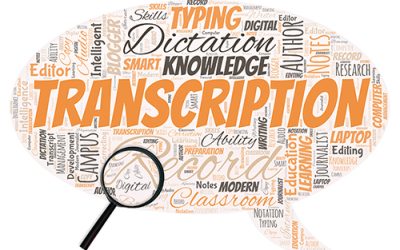Legal writing is the style that legal professionals use to produce documents for presentation in the court. Digital transcription agencies provide accurate transcripts of the audio recordings of various legal proceedings which can be used to prepare legal documents. Good legal writing is a skill that every lawyer needs to have. “Poor writing by an attorney can result in any or all of the following: the court sanctioning the attorney; the client losing his or her legal claim; or the client becoming involved in unnecessary litigation,” explains Thompson Reuters.
Poorly written legal documents get circulated and confuse both parties, which could lead to misunderstandings. Legal arguments might be lost because of bad writing. It can harm cases and lead to sanctions. Courts demand clarity in briefs and pleadings as judges need to understand the case to make a ruling.
So what exactly is good legal writing? A well-crafted legal document is one that is precise, powerful, and persuasive, but written in simple, clear language with no room for any confusion. The most effective legal writing is well researched, clearly organized, logically sound, and professional in tone and appearance (The Supreme Court of Ohio).
Knowing legal writing don’ts is important to produce a good legal document. Here are the common mistakes that lawyers should watch out for to ensure effective writing:
- Don’t Lose Sight of your Purpose and your Audience: Keep your primary audience and goal in mind while writing, but be aware that other people may read the document. In the context of legal document, good writing means that it helps legal readers to make decisions in the course of their professional capacity. For example, a brief is well-written if it helps the lawyer present the facts of the case effectively and convinces the intended audience – the court. If a memorandum is a letter to a client, write in an informative, non-legal style that effectively conveys possible actions and probable outcomes, along with recommendations.
- Don’t Neglect Research: Thorough research is an essential element for success with legal writing. Study all the available material to understand the legal issues and applicable jurisdiction. While each case is different, follow basic legal research rules. Make good use of both primary and secondary sources of information. Free legal research tools such as Fast Case, Caselaw Access Project, and Court Listener can help you save research time and cost.
- Don’t Overuse the Passive Voice: Using the passive voice would eliminate the doers of action and mask their role, which would take away from clarity and conciseness. Use the active voice. For example, write “John delivered the document” instead of “the document was delivered by John” or “the document was delivered”. However, the passive voice does have its place in legal writing. For instance, if you don’t want to identify the doer (if he is your client) or you don’t know who performed the action.
- Don’t Present Long, Wordy Documents: Long documents are usually tedious and difficult to read. Long documents can irritate the reader, and this would work against you if the reader is the judge! Write short sentences. Make sure you present a succinct product in which each sentence and each word in that sentence has a purpose. If words don’t serve a purpose, delete them. Good writing conveys the writer‘s points concisely, without unnecessary words, and with the right amount of detail.
- Don’t Use too much Legal Jargon: Legal documents that are full of confusing technical terms are difficult to understand. Legalese is confusing for a layperson. For instance, when drafting a contract, don’t use too much legal jargon and unnecessary and incomprehensible language. For e.g., avoid words like aforesaid, hereinafter indemnification, warrant, and force majeure. The parties, who are non-lawyers, should be able to interpret the document they are expected to sign. Use clear, plain language that convey matter clearly and concisely.
- Don’t Forget to Proofread and Self-Edit: When your document is complete, proofread it ruthlessly. Check accuracy of names and numbers and make sure there are no undefined abbreviations. Do a punctuation, spelling and grammar check. Address misused homonyms and pronouns. Verify adherence to formatting and style rules and ensure that headings, subheadings, bullets, indents, and footnotes are consistent.
Lawyers should aim to ensure clear and concise writing. Ineffective writing leads to wasted time for all parties involved in the case. Poor writing by a lawyer can cause the client to end up in a lawsuit and lose rights, and also result in sanctions imposed by the court against the attorney.
As attorneys focus on writing quality legal documents, they can rely on audio transcription service providers to convert audio and video recordings of evidence into error-free text.




